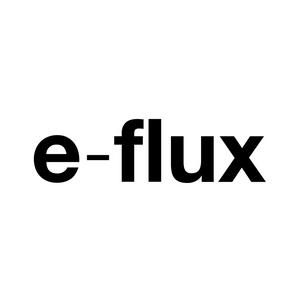e-flux journal Associate Editor Andreas Petrossiants talks to author Andrew Ross about his recent book, The Weather Report: A Journey Through Unsettled Climates.
Between the summers of 2023 and 2024, Andrew Ross visited Ramallah (Palestine), Dubai (UAE), Phoenix (USA), and Shanghai (China)—some of the landscapes most disturbed by human activity, whether through active warfare or massive development projects. Rather than offering another eco-polemic or recalling for us the dread prognostications of Malthus in the 19th century or Ehrlich in the 20th, The Weather Report is a clear-eyed and essentially optimistic book that proposes a pragmatic, just, and urgent new common ground reestablishing scalable projects of mutual aid and care as a new, essential center for our economic, ecological, and social well-being.
Andrew Ross is a social activist and Professor of Social and Cultural Analysis at NYU. A contributor to The Guardian, The New York Times, The Nation, Artforum, Jacobin, New York Review of Books, and Al Jazeera, he is the author or editor of almost 30 books and hundreds of articles on a wide variety of topics—labor and work, urbanism, politics, technology, environmental justice, alternative economics, music, film, TV, art, architecture, and poetry. His articles have appeared in newspapers and magazines as well as in academic and public interest journals, and his books are published by mainstream trade, academic, and independent presses. He has lectured at hundreds of universities and cultural institutions in North America, Europe, Asia, Latin America, the Middle East, and Australia. Politically active in many movement fields, he is the co-founder of several groups–Gulf Labor Artists Coalition, Global Ultra Luxury Faction, Coalition for Fair Labor, Occupy Student Debt Campaign, Strike Debt, the Debt Collective, and Decolonize This Place—and is an organizer with others, including the American Association of University Professors and the US Academic and Cultural Boycott of Israel. He also serves on the steering committee of the national network of Faculty and Staff for Justice in Palestine.
Ross's books include The Weather Report; A Journey Through Unsettled Climates, Abolition Labor: The Fight to End Prison Slavery, Cars and Jails: Freedom Dreams, Debt, and Carcerality, Sunbelt Blues: The Failure of American Housing, Stone Men: The Palestinians Who Built Israel (winner of a Palestine Book Award), Creditocracy and the Case for Debt Refusal, Bird On Fire: Lessons from the World's Least Sustainable City, Nice Work If You Can Get It: Life and Labor in Precarious Times, Fast Boat to China: Corporate Flight and the Consequences of Free Trade–Lessons from Shanghai, Low Pay, High Profile: The Global Push for Fair Labor, No-Collar: The Humane Workplace and its Hidden Costs, The Celebration Chronicles: Life, Liberty, and The Pursuit of Property Value in Disney's New Town, Real Love: In Pursuit of Cultural Justice, The Chicago Gangster Theory of Life: Nature's Debt to Society, Strange Weather: Culture, Science and Technology in the Age of Limits, and No Respect: Intellectuals and Popular Culture.


